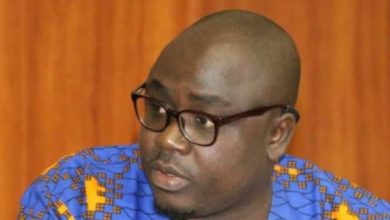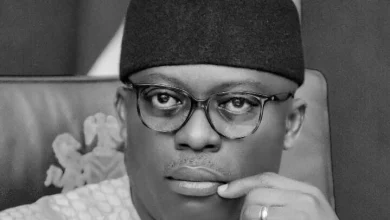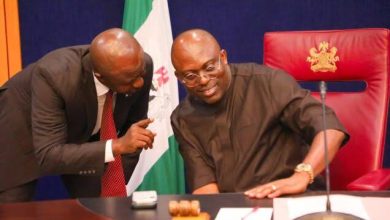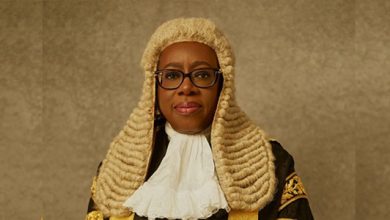Populism and Demonization of Wealth: The APC Strategy

In many countries of the world, wealth is considered to be a product of hard work, dedication and productivity prima facie, but in Nigeria, the case defers. Rather riches and wealth are adjudged to be proceeds of corrupt dealings and illicit crimes without proof or evidence by the common man. This is a thought process that has seriously ravaged the Nigerian society as it has given many people justifications for being and remaining poor.
The average Nigerian now believes that he or she is poor not because of lack of innovative ideas, entrepreneurship skills, lack of access to capital and other similar factors but rather attribute their misfortunes and mishaps to “corruption”.
This erroneous and illogical line of thought has been further impressed upon by the Buhari and APC led administration. Its anti-corruption crusade has sent a message to the average Nigerian that poverty in Nigeria is a sign of virtue because only the “corrupt” are able to live well and the outcome of the 2019 presidential election is proof that this approach worked brilliantly, with voters responding positively to a message that absolved them of responsibility and found a comfortable and suitably visible scapegoat.
The same approach is working well in the United States with a candidate who is sure to challenge Donald Trump in the coming presidential elections in the name of Alexandria Ocasio-Cortez. She has also just like Muhammadu Buhari had done, branded herself to be a “candidate of the people” and on the surface her message is “billionaires and corporate money are distorting democracy,” but what voters are actually expected to hear and respond to is a class warfare dog whistle saying “rich people think they are better than you”. Similarly, the message Nigerian voters really got from the “live within your means” mantra was “those smug city people feel superior to you because they have some money which they probably stole.”
I hold a bias against populist politics because it plays on the intelligence of the less intelligent and resonates with the ignorant in the society.
However, I will put my bias to the side and say that it is good as a political strategy especially in a country like Nigeria where there are more illiterates than literates, the educational system is in shambles and where a majority do not possess the capacity to critically analyse government policies and performances.
Exposed!! Popular Abuja doctor revealed how men can naturally and permanently cure poor erection, quick ejaculation, small and shameful manhood without side effects. Even if you are hypertensive or diabetic . Stop the use of hard drugs for sex!! It kills!
For example, we would see that Buhari’s fighting corruption mantra meant that it helped Buhari’s campaign team avoid discussing about more pressing issues like Nigeria’s bloated, inefficient, and excessively powerful central government and the unsustainable nature of its welfarist federal budget with such programmes like the school feeding programme which can be argued is unsustainable especially as the funds used to carry out these programmes are external loans, and instead of these loans to be used for infrastructure are used to finance recurrent expenditures. Also the former point is buttressed by the fact that Buhari declined to attend the presidential debate in order to escape talking about real and pressing issues.
To have such a discussion would mean explaining why amidst the naira’s 85 percent fall against the dollar in 2016, Buhari’s government chose to maintain an unrealistic official exchange rate which was used to subsidize religious pilgrims heading to Mecca for the Hajj.
Such conversations would include discussing the opposition’s stated plan to privatise NNPC, Nigeria’s state-owned oil firm that essentially functions as an independent country on its own, with no practical oversight by or accountability to government. Rather than discuss a lack of investment in education and healthcare, extremely poor power generation and transport infrastructure, or the lack of proper separation of powers making the executive a law unto itself, the campaign was instead spent attacking the convenient fig leaves of “corrupt people”, “treasury looters,” and “arrogant elites”.
In the absence of rational debates except within and between largely unsought after candidates, it meant that the election was not necessarily issue based but rather people were moved to vote by emotions, sentiments and their stomachs. There was massive vote-buying because the state of the economy in the last 3 or 4 years has been horrible and politicians recognize that a largely poor citizenry helps to reduce the market-price of votes which some have called “the weaponisation of poverty”.
Also, Buhari’s campaign painted a picture of a country held hostage by “corrupt” elites, “treasury looters” and their middle-class subalterns who wanted to vote in a pro-business candidate to preserve the corruption status quo and these people mentioned above have been classified as the scapegoats for which the impoverished population can put their blame on.
The general feeling of the average poor Nigerian was that the 23rd of February elections was down to “people who are stealing Nigeria’s money,” regardless of how easily that argument falls down when challenged by the most cursory analysis. Their world is a zero-sum game, where if someone eats three times a day, lives in a comfortable modern residence and drives a car or has a convoy of cars, must have those things because they “stole” them, or they work for someone who stole them and however intellectually redundant such a viewpoint is, it has a powerful emotional resonance that is often amplified by lack of education and existing ethno-religious divisions within the population.
The APC led government has continued to capitalize on the status-quo, raising clenched fists before adorning crowds, admonishing them to “live within their means” while demonising economic ambition and wealth. They have achieved great political success by weaponising the economic envy of a large, impoverished population, publicly glorifying poverty as a virtue while at the same time ironically collecting the world’s most generous compensation packages for political office holders. It is clear that the politics of populism and envy may be very good at winning elections, but they clearly are not good at running successful economies.
Prince Adeniji is a 400L student of the Department of Political Science, Babcock University, Ilishan, Ogun State




